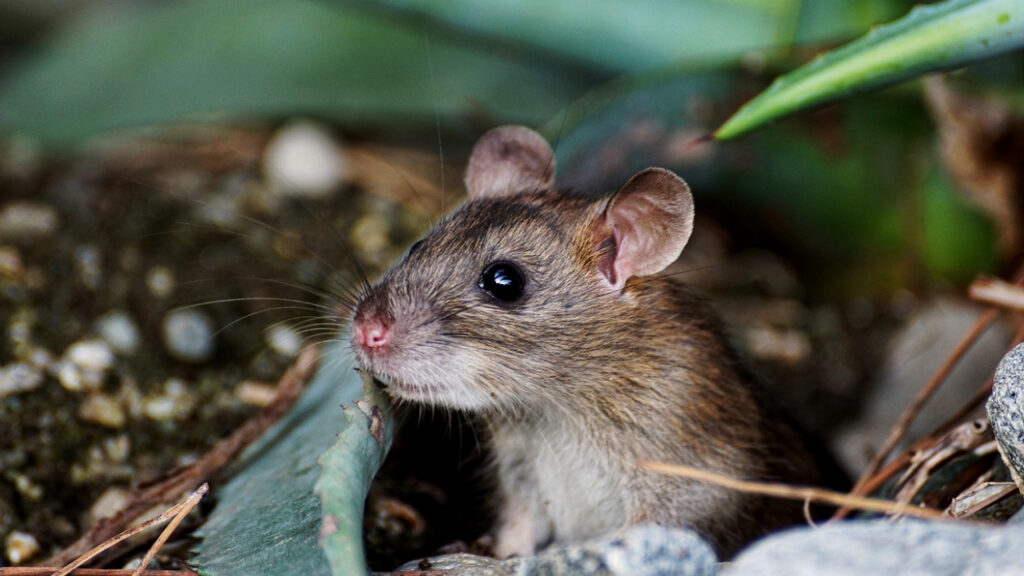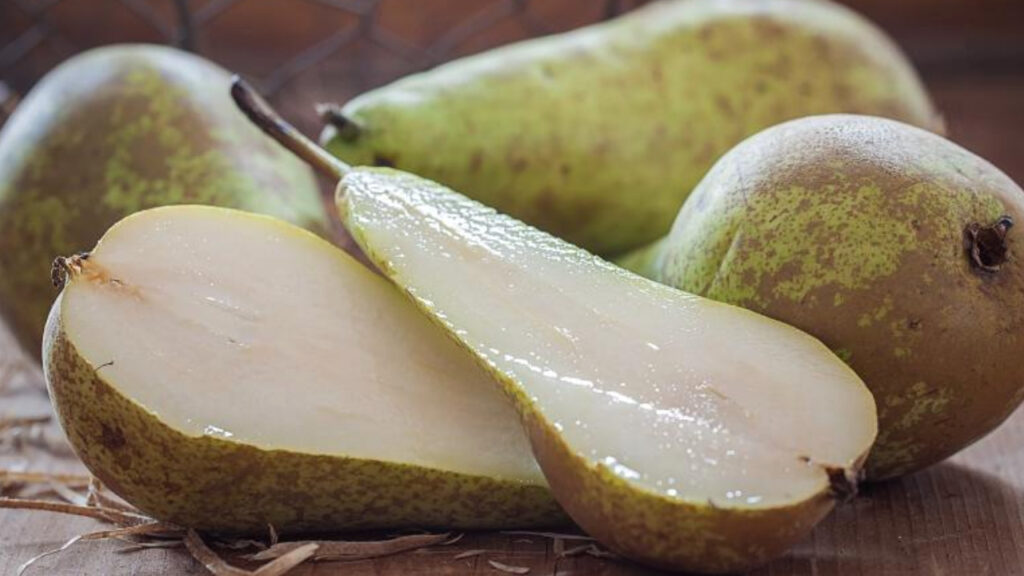
Pears are a type of fruit that belongs to the Rosaceae family. They are known for their sweet and juicy flesh and come in various varieties. Pears are a good source of vitamins, minerals, and dietary fiber.
But can rats eat pears too?
Yes, rats can eat pears, and they can be a healthy addition to their diet when offered in moderation. Pears provide essential nutrients, including vitamin C, potassium, and dietary fiber. However, it’s important to prepare pears properly for rats by removing the seeds and core. Pear seeds contain small amounts of cyanide, which can be harmful in larger quantities.
So, should you feed pears to your rats?
Let’s find out!
Table of Contents
Can Rats Eat Pears?
Yes, rats can eat pears in moderation. Pears are a good source of vitamins and minerals, including vitamin C and potassium. However, like any treat or new food, they should be introduced gradually and in small quantities to ensure your rat’s digestive system can tolerate them.
Pears are high in natural sugars, so they should be given in moderation. Too much sugar can lead to obesity and other health issues.
Make sure youprovide fresh, ripe pears. Avoid giving your rats spoiled or overly ripe fruit.
Also, don’t forget toremove the seeds and core of the pear before offering it to your rats. Pear seeds contain small amounts of cyanide, which can be harmful in larger quantities.
If you notice any digestive issues or other problems after feeding pears, it’s best to consult with a veterinarian who specializes in small animals.
So, yes rats can have pears alongside other rat-friendly foods.
Also read: Can Rats Eat Blackberries?
How Much Pears Can Rats Have?
When it comes to feeding pears to rats, moderation is key.
While pears can be a healthy and tasty addition to a rat’s diet, they should be given in small quantities due to their sugar content.

Offer pears as an occasional treat rather than a regular part of their diet. 2-3 times a week is generally a good guideline.
For an adult rat, a small slice or a couple of small pieces of pear is sufficient. You want to avoid giving them too much at once to prevent digestive issues and excess sugar intake.
Also,watch your rats for any signs of digestive upset or allergies when introducing new foods. If they tolerate pears well, you can continue to include them in their diet in moderation.
Is Pears Healthy for Rats?
Pears can be a healthy addition to a rat’s diet when offered in moderation. They provide several health benefits due to their nutritional content.
A typical serving of pears (100g) contains:
- Calories: 57 kcal
- Water: 83%
- Carbohydrates: 15.5g
- Sugars: 9.8g
- Dietary Fiber: 3.1g
Other health benefits of pears may include:
Rich in Vitamins
Pears are a good source of vitamin C, which is essential for the immune system. This vitamin plays a crucial role in maintaining overall health and helping the body fight off infections.
Dietary Fiber
Pears contain dietary fiber, which aids in digestion and helps prevent constipation. Fiber is essential for maintaining a healthy digestive system in rats.
Antioxidants
Pears contain antioxidants, such as flavonoids, which help protect cells from damage caused by free radicals. Antioxidants contribute to overall health and may have positive effects on aging and disease prevention.
Hydration
Pears have a high water content, contributing to hydration. Adequate hydration is essential for various bodily functions and overall well-being.
Natural Sugars
While the natural sugars in pears should be given in moderation, they can provide a quick energy boost for rats.
Risks of Overfeeding Pears to Rats

While pears can be a healthy addition to a rat’s diet when given in moderation, overfeeding any food, including pears, can pose several risks to your rats:
Obesity
Pears contain natural sugars, and overconsumption can contribute to weight gain.
Obesity in rats can lead to a variety of health problems, including cardiovascular issues, joint problems, and a decreased lifespan.
Digestive Issues
Rats have sensitive digestive systems, and introducing new foods too quickly or in large quantities can lead to digestive upset.
Diarrhea or gastrointestinal disturbances may occur if pears are fed in excess.
Dental Problems
While pears themselves are not particularly harmful to a rat’s teeth, overfeeding sugary treats, including fruits, can contribute to dental problems.
Rats need to gnaw on hard objects to keep their teeth healthy, so their diet should include appropriate items for dental health.
Preference for Treats
Overfeeding treats may lead rats to develop a preference for sugary or tasty foods over nutritionally balanced ones.
This can make it challenging to ensure they get all the essential nutrients they need for optimal health.
Thus, it’s crucial to provide treats, including pears, in moderation and as part of a varied and nutritionally balanced diet.
And always monitor your rats for any signs of health issues and adjust their diet accordingly. Consult vet if necessary.
Can Rats Eat Pear Seeds and Cores?
It’s not advisable to feed rats pear seeds or cores.
Pear seeds, like many fruit seeds, contain small amounts of cyanide.
While the amount of cyanide in a single seed is typically not enough to cause harm, it’s still best to err on the side of caution and remove the seeds.
Cyanide is a toxic substance that can interfere with the body’s ability to use oxygen, and in larger quantities, it can be dangerous. While the amount in a single pear seed is generally small, rats are small animals, and their bodies may be more sensitive to certain substances.
Additionally, the cores of pears can be tough and might pose a choking hazard to rats. Removing the seeds and cores before offering the pear to your rats ensures that they can enjoy the fruit safely.
Tips to Prepare Pears for Rats

Preparing pears for rats involves a few simple steps to ensure they are safe and enjoyable for your pets.
Here are some tips on how to prepare pears for rats:
- Wash Thoroughly: Rinse the pear under running water to remove any pesticides or residues. This step is essential, especially if you’re not using organically grown pears.
- Peel the Skin: While some rats may enjoy eating pear skin, it’s a good idea to peel the pear, especially if it’s not organic. The skin can be harder to digest and may contain pesticide residues.
- Remove Seeds and Core: Cut the pear into small, bite-sized pieces, and be sure to remove the seeds and core. Pear seeds contain small amounts of cyanide, which can be harmful, and the core can be a choking hazard.
- Offer in Moderation: Remember that moderation is key. Offer small portions to avoid overfeeding, and keep treats like pears as part of a balanced diet.
- Freshness Matters: Provide fresh and ripe pears. Rats are more likely to enjoy the taste, and fresher fruits are generally safer and more nutritious.
And lastly, observe your rats for any signs of allergies or digestive problems. If they tolerate pears well, you can continue to include them in their diet.
While pears can be a tasty treat, it’s important to provide a variety of fruits and vegetables to ensure a well-rounded diet for your rats.
Other Rat-friendly Fruits for Your Pet
Rats can enjoy a variety of fruits in moderation as part of a balanced diet.
Here are some rat-friendly fruits:
- Apples: Remove the seeds and core, and offer small slices. Apples are a good source of fiber and vitamin C.
- Bananas: High in potassium, bananas can be given in small pieces. They are a favorite for many rats.
- Berries: Rats can enjoy berries such as strawberries, blueberries, and raspberries. These are rich in antioxidants.
- Cherries: Remove the pits and stems, and offer cherries in moderation. They contain vitamins and antioxidants.
- Grapes: Remove seeds and cut grapes into smaller pieces. Grapes are a hydrating fruit.
- Kiwi: Rich in vitamin C, kiwi can be offered in small amounts. Peel and slice it for your rats.
- Mango: A tropical fruit that can be given in moderation. Remove the pit and offer small, bite-sized pieces.
- Melons: Watermelon, cantaloupe, and honeydew are hydrating and can be given in small, seedless portions.
- Papaya: A source of vitamins and enzymes, papaya is suitable for rats. Remove the seeds and skin.
- Peaches and Nectarines: Remove the pit and offer small slices. These fruits contain vitamins and minerals.
These are the fruits that can be given to rats. However, do not go overboard with anything. Rats have a specific dietary requirement and overdoing anything could lead to several health issues.
Final Thoughts
To sum up, rats can indeed eat pears, and they can be a nutritious addition to their diet when given in moderation.
Pears provide essential vitamins and minerals, including vitamin C and potassium. However, it’s important to be mindful of certain precautions:
Pears, like any treat, should be offered in moderation.
Excessive consumption can lead to health issues such as obesity and digestive problems.
Always remove the seeds and core before giving pears to rats to avoid potential cyanide exposure and choking hazards.
Lastly, pears should be part of a varied and balanced diet that includes high-quality rat pellets, fresh vegetables, and grains.
Before you go, here are other helpful articles:
